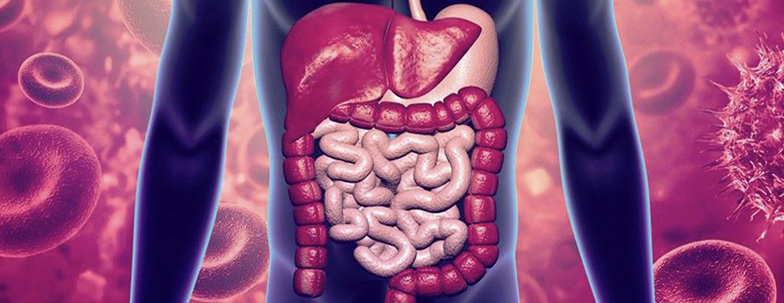
The first studies demonstrating the effectiveness of seaweed in the treatment of digestive disorders were made in Japan. Dr. Takechi and his associates have used seaweed to treat patients with constipation problems.
They found that algae quadrupled the production of lactobacilli. One of these micro-organisms making up the intestinal flora, also called probiotics, essential for the proper functioning of the digestive system.
Spirulina stimulates digestion and elimination. It suppresses highly undesirable bacteria such as e-coli and candida while stimulating beneficial bacteria such as lactobacillus and bifido-bacteria. Lactobacillus participates in the digestion and absorption of food, prevents infections and activates immunity. Spirulina increases the production of lactobacillus in the intestine and improves the absorption of vitamins.
In the 1970s, Japanese scientists observed an analgesic effect on patients suffering from gastric atony, gastritis and ulcers. They then explained the therapeutic effects of spirulina on gastric problems and ulcers, including this action on pain, by the chlorophyll it contains and healing has been recognized for a long time.
A. HEPATIC DISORDERS
Clinical studies in Japan, including that of Professor Noburu Iijima, have demonstrated the role - both preventive and curative - of spirulina on "fatty liver", hepato-cirrhosis and fibrosis. Professor Iijima found, among other things, that subjects who took 4-5 tablets of spirulina before drinking alcohol did not suffer from the undesirable side effects usually caused by large libations. Spirulina also limits liver damage caused by the abuse of certain drugs and exposure to heavy metals.
A Chinese study shows that spirulina deactivates the proliferation of hepatic stellate cells - cells that are activated when the liver suffers damage. The hepato-protective properties of spirulina can be attributed to its anti-inflammatory, antioxidant and immuno-corrective effects.
Researchers have validated the use of spirulina to treat diffuse chronic liver disease because it stabilizes the process and prevents the development of chronic hepatitis into hepatocirrhosis. Hepatitis is caused by different factors: viral infection, unhygienic diet or side effects of drugs. Various researches done by Japanese doctors show that spirulina is extremely effective in the prevention and treatment of chronic, acute and viral hepatitis. An extremely interesting Japanese observation attests that zeaxanthin, a pigment of the carotenoid family, contained in spirulina, allows the inhibition of metastatic tumors of the liver.
B. PANCREATITIS
Pancreatitis is an inflammation of the pancreas. It can be acute or chronic. The acute form is sudden, very severe and can lead to death. The chronic form occurs when the pancreas is the object of permanent aggression linked to excesses. It can cause constant pain and an irremediable decline in function. A study by Dr. Minoru Tanaka indicates that spirulina quickly gave excellent results on day patients suffering from chronic pancreatitis. The same observations were made by Romanian doctors.
